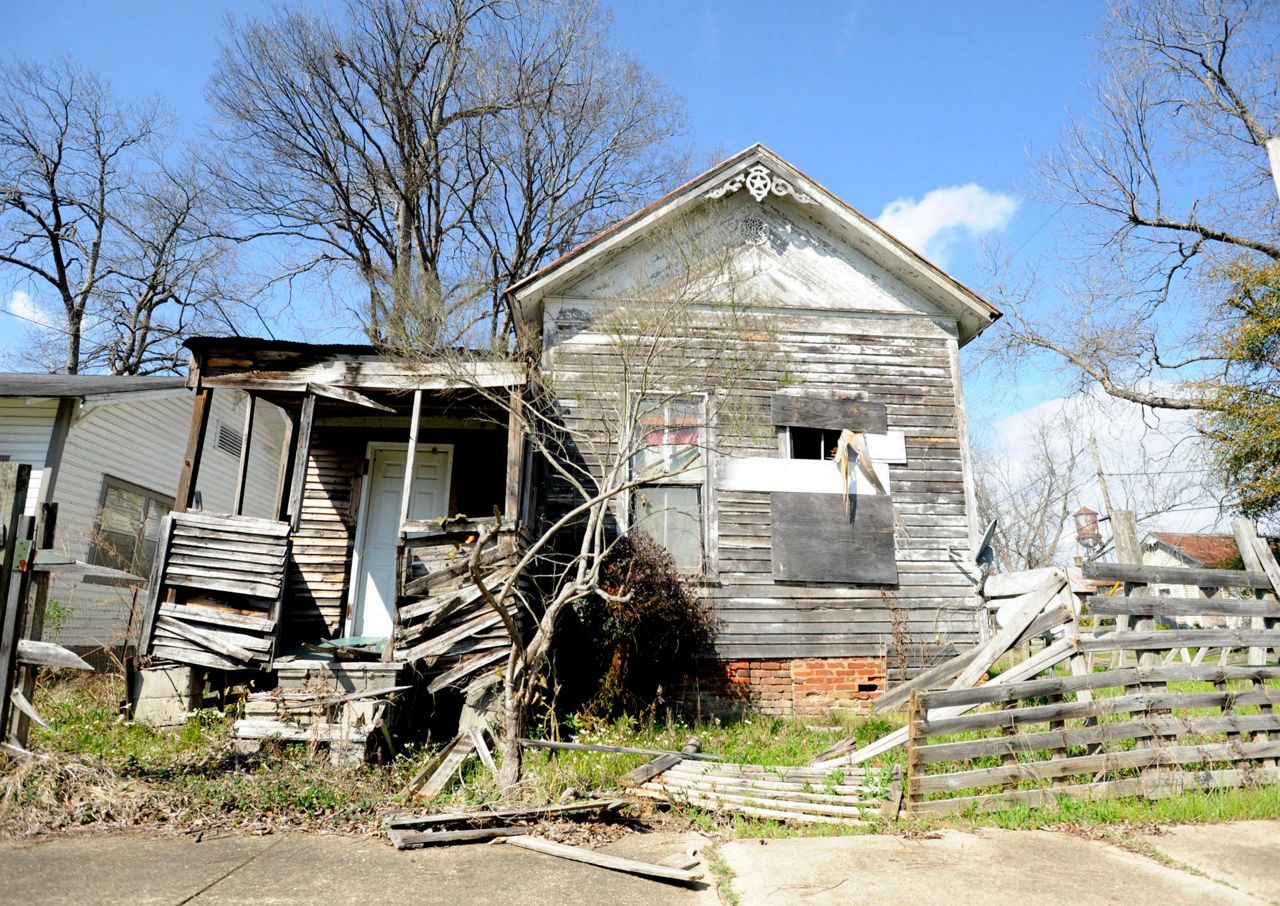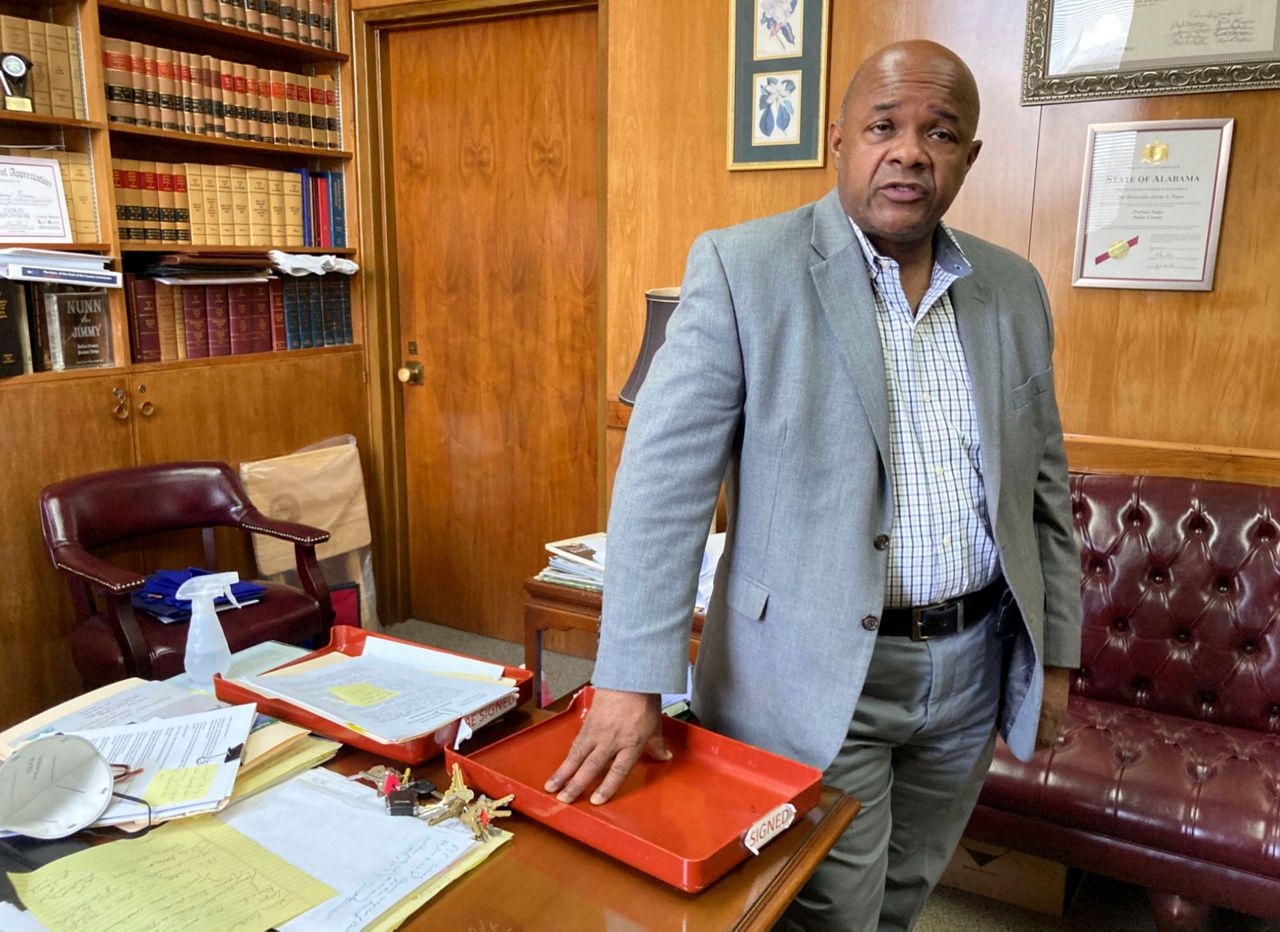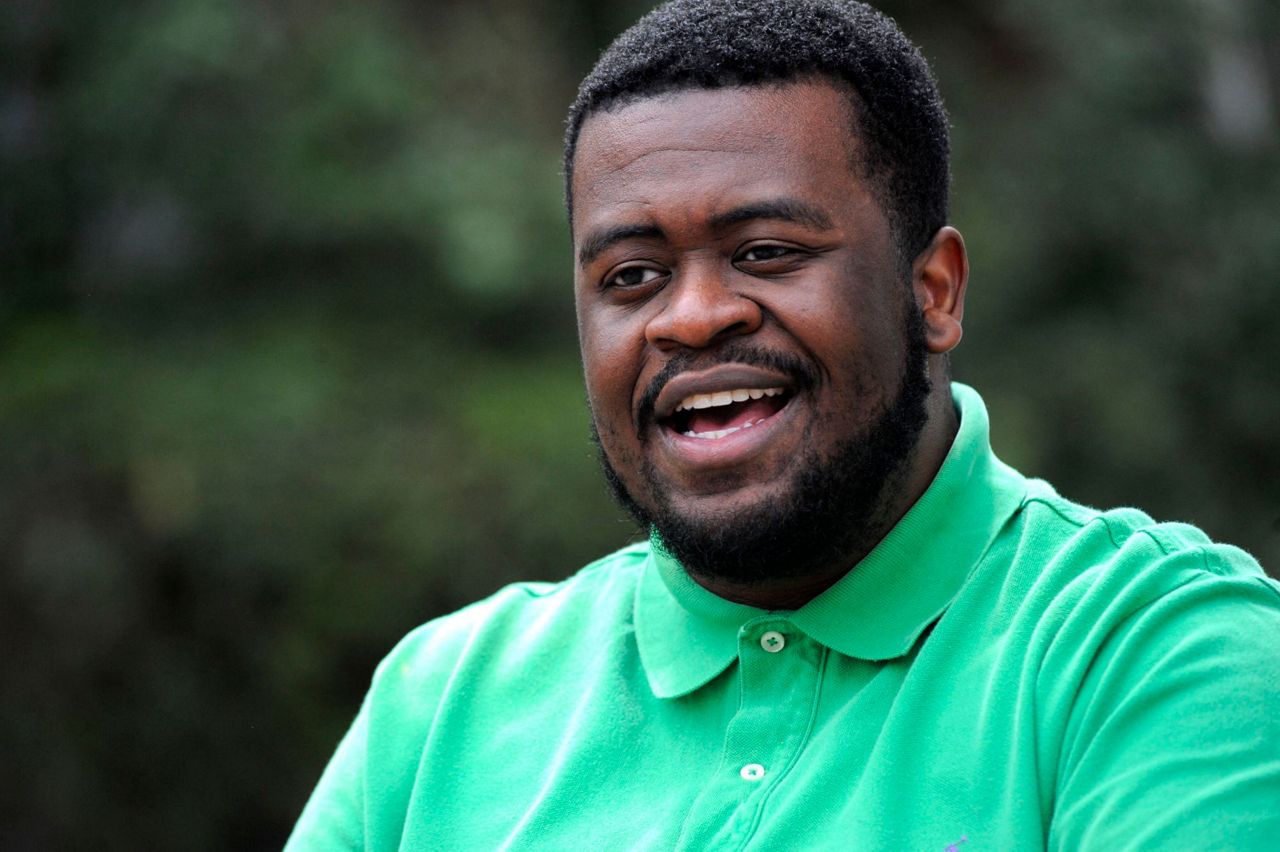SELMA, Ala. (AP) — Fewer and fewer people are voting in Selma, Alabama. And to many, that is particularly heartbreaking.
They lament that almost six decades after Black demonstrators on the city’s Edmond Pettus Bridge risked their lives for the right to cast ballots, voting in predominantly Black Selma and surrounding Dallas County has steadily declined. Turnout in 2020 was under 57%, among the worst in the state.
Rep. Terri Sewell, a Black Democrat whose district includes her hometown of Selma, said Friday she was shocked to learn of the decline, reported by The Associated Press.
“You would think that Selma and Dallas County, we, of all places, should know the importance of voting in every election,” Sewell said in an interview. Voter apathy is a problem, she said.
Thousands will gather March 6 for this year’s reenactment of the bridge crossing to honor the foot soldiers of that “Bloody Sunday” in 1965. Downtown will resemble a huge street festival during the event, known as the Selma Bridge Crossing Jubilee, with thousands of visitors, blaring music and vendors selling food and T-shirts.
Another Selma event, less celebratory and more activist, was held last year by Black Voters Matter. The aim was to boost Black power at the ballot box.
But the issues in Selma — a onetime Confederate arsenal, located about 50 miles (80 kilometers) west of Montgomery in Alabama’s old plantation region — defy simple solutions.
Some cite a hangover from decades of white supremacist voter suppression, others a 2013 Supreme Court ruling that gutted key provisions of federal voting law to allow current GOP efforts to tighten voting rules. Some Black voters, who tend to vote Democratic, simply don’t see the point in voting in a state where every statewide office is held by white Republicans who also control the Legislature.
Then there is what some describe as infighting between local leaders, and low morale in a crime-ridden town with too many pothole-covered streets, too many abandoned homes and too many vacant businesses. All are considered factors that helped lead to a 13% decline in population over the last decade in a town where more than one-third live in poverty.
Despite visits from presidents, congressional leaders and celebrity luminaries like Oprah Winfrey — and even the success of the 2014 historical film drama “Selma” by Ava DuVernay — Selma never seems to get any better.
Resident Tyrone Clarke said he votes when work and travel allow, but not always. Many others don’t because of disqualifying felony convictions or disillusionment with the shrinking town of roughly 18,000 people, he said.
“You have a whole lot of people who look at the conditions and don’t see what good it’s going to do for them,” Clarke said. “You know, ‘How is this guy or that guy being in office going to affect me in this little, rotten town here?'”
But something else seems to be going on in Selma and Dallas County. Other poor, mostly Black areas have not seen the same drastic decline in turnout. Only one of Alabama’s majority Black counties, Macon, the home of historically Black Tuskegee University, had lower voter turnout than Dallas in 2020.
Selma is hardly the only place where big Black majorities don’t always translate to big voter turnout. The U.S. Census Bureau found that a racial gap persisted nationwide in voting in 2020, with about 71% of white voters casting ballots compared to 63% of eligible Black people.
A majority of Dallas County’s voters are Black, and Black people made up the largest share of the county’s vote in 2020, about 68%, state statistics show. But white voters had a disproportionally larger share of the county electorate compared to Black voters, records showed.
Jimmy L. Nunn, a former Selma city attorney who became Dallas County’s first Black probate judge in 2019, said the community is weighted down by its own history.
“We have been programmed that our votes do not count, that we have no vote,” said Nunn, who works in the same county courthouse where white, Jim Crow officeholders refused to register Black voters, helping inspire the protests of 1965. “It is that mindset we have to change.”
Selma entered voting rights legend because of what happened at the foot of the Edmond Pettus Bridge, which is named for a onetime Confederate general and reputed Ku Klux Klan leader, on March 7, 1965.
After months of demonstrations and failed attempts to register Black people to vote in the white-controlled city, a long line of marchers led by John Lewis, then a young activist, crossed the span over the Alabama River headed toward the state capital of Montgomery to present demands to Gov. George C. Wallace, a segregationist. State troopers and sheriff’s posse members on horseback stopped them.
A trooper bashed Lewis’ head during the ensuing melee and dozens more were hurt. Images of the violence reinforced the evil and depth of Southern white supremacy, helping build support for the Voting Rights Act of 1965.
In the following decades, Selma became a worldwide touchstone for voting rights, with then-President Barack Obama speaking at the 50th anniversary of Bloody Sunday in 2015.
“If Selma taught us anything, it’s that our work is never done,” he said. “The American experiment in self-government gives work and purpose to each generation.”
But in Selma, voting already was on the decline. After more than 66% of Dallas County’s voters went to the polls in 2008, when Obama become the nation’s first Black president, turnout fell in each presidential election afterward.
Shamika Mendenhall, a mother of two young children with a third on the way, was among registered voters who did not cast a ballot in 2020. She often goes to the annual jubilee that marks the anniversary of Bloody Sunday and has relatives who participated in voting rights protests of the 1960s, and she’s still a little sheepish about missing the election.
“To choose our president we ought to vote,” said Mendenhall, 25.
A Black member of the county’s Democratic Party executive committee, Collins Pettaway III spends a lot of time pondering how to get young voters like Mendenhall more engaged. Older residents who remember Bloody Sunday and the subsequent Selma-to-Montgomery voting rights march vote, he said, but turnout is falling away among millennials and other, younger generations.
“We just have to try to really make it relevant for them and really get them to see the importance through their lens,” said Pettaway, 32, the son of a county judge.
This year, the commemoration of Bloody Sunday will include a “hip-hop political summit” aimed at helping make voting more relevant and giving voice to the reality that many people have given up on the system because they seldom see their votes making a difference in their daily lives, he said.
“There are so many people who feel they have been disenfranchised and they believe that the system is working against them. We cannot dispute it and we cannot make them feel that is wrong, because it is true,” Pettaway said. “We have to let them know and find a way for them understand that the only way that is going to change is if they participate in the process.”
Copyright 2022 The Associated Press. All rights reserved. This material may not be published, broadcast, rewritten or redistributed without permission.







